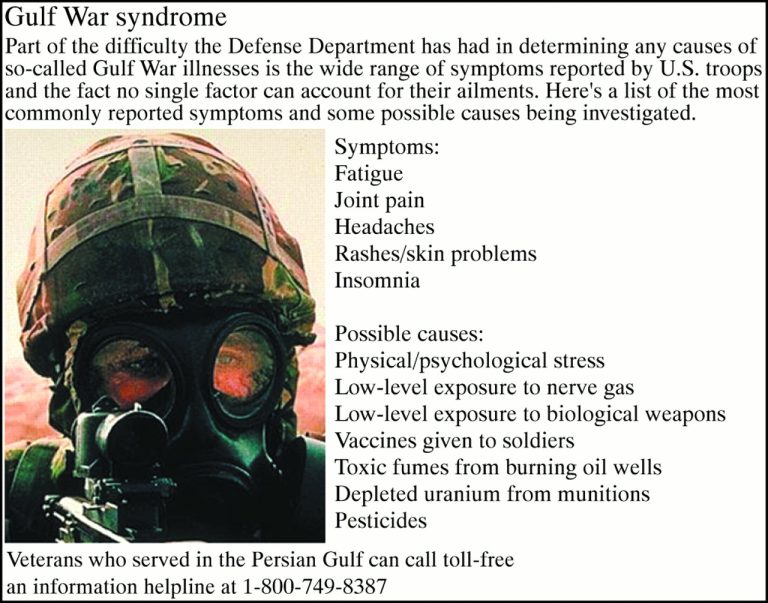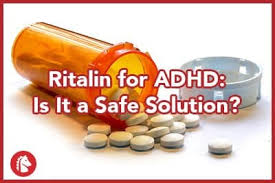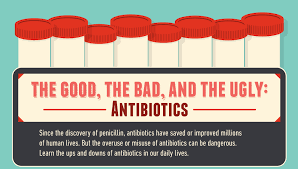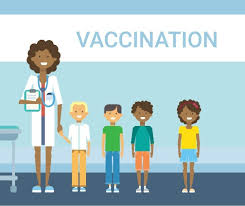CT Scans and Risk to Health I was motivated to write this researched article after many of my patients have been asking questions about how harmful are repetitive CT scans for diagnostic purposes. I have personally encountered patients who have had 8 – 10 CT scans in a period of only 3 – 4 years, and it is certain that there are many more in the same situation. Hopefully this article will provide much needed information and scientific references to aid both patients and doctors alike in the sensible use of CT scans, as well as the use of radiation therapy as a cancer treatment. One third of people getting a CT scan didn’t know the test exposed their body to radiation. Moreover, and more significant, 75% of an entire group of health professionals significantly underestimated the radiation dose from a CT scan, and 53% of radiologists and 91% of emergency-room physicians did not believe that CT scans increased the lifetime risk of cancer! In a new study (http://archinte.jamanetwork.com/article.aspx?articleid=1487286) from a U.S. medical center, researchers found that 85% of patients also underestimated the amount of radiation delivered by a CT scan, and only 5% of them thought the scan would increase their chances of getting cancer again in their lifetime (1). It is estimated that more than 62 million CT scans per year are currently obtained in the United States, including at least 4 million for children. (2) CT scans are high-powered X-rays that expose patients to between ten and 100 times more …
Gulf War Syndrome - the Cover-Up Already, more than 10,000 are dead and 250,000 are sick from Gulf War syndrome. What secret is so terrible (or embarrassing) that necessitates a cover-up of the facts? TRUTH IS THE FIRST CASUALTY OF WAR The air raid siren went off." Former Royal Air Force Corporal Richie Turnbull wheezed and coughed as he spoke. He is one of tens of thousands of Gulf War veterans who have been diagnosed with a fistful of illnesses attributed to service in the Gulf War. These include emphysema, angina, asthma, arteriosclerosis, arthritis, short-term memory loss, muscle wasting, cough syncope and numerous other debilitating ailments. Before deployment to the Gulf, Turnbull was an accomplished and superbly fit sub-aqua diver. Today, he walks with the aid of canes, slowly.With understandable pride he told me how he had "proved Soames to be a liar three times". The reference was to the former Conservative Minister of State for the Armed Forces, the Honourable Nicholas Soames, MP. Many vets uncharitably call the former minister "Fatty Soames", owing to his handsome girth. The appellation reflects the seething contempt of an individual whom vets regard as one of the principal architects of a monstrous transatlantic cover-up. Turnbull was an RAF Senior Electrician in a Nuclear, Biological & Chemical (NBC) unit and an experienced instructor on NBC equipment. He was stationed at the giant military base located at Dhahran on the night of 20 January 1991, when air raid sirens began wailing madly. Incoming Scud missiles …
Ritalin - Dangers of Drugging Our Children Testimony Before the Subcommittee on Oversight and Investigations Committee on Education and the Workforce Peter R. Breggin, M.D., Director, International Center for the Study of Psychiatry and PsychologyI appear today as Director of the International Center for the Study of Psychiatry and Psychology (ICSPP), and also on my own behalf as a practicing psychiatrist and a parent. Parents throughout the country are being pressured and coerced by schools to give psychiatric drugs to their children. Teachers, school psychologists, and administrators commonly make dire threats about their inability to teach children without medicating them. They sometimes suggest that only medication can stave off a bleak future of delinquency and occupational failure. They even call child protective services to investigate parents for child neglect and they sometimes testify against parents in court. Often the schools recommend particular physicians who favor the use of stimulant drugs to control behavior. These stimulant drugs include methylphenidate (Ritalin, Concerta, and Metadate) or forms of amphetamine (Dexedrine and Adderall). My purpose today is to provide to this committee, parents, teachers, counselors and other concerned adults a scientific basis for rejecting the use of stimulants for the treatment of attention deficit hyperactivity disorder or for the control of behavior in the classroom or home. I. ESCALATING RATES OF STIMULANT PRESCRIPTION Stimulant drugs, including methylphenidate and amphetamine, were first approved for the control of behavior in children during the mid-1950s. Since then, there have been periodic attempts to promote their usage, and …
Antibiotics Kill Good Bacteria Causing Disease The information that follows is a two-part article taken directly from Doug Kaufmann and Dave Holland, MD's new book, "The Fungus Link, Volume 2." Antibiotics Kill Your Body's Good Bacteria, Too, Leading to Serious Health Risks by Doug Kaufmann“It is ironic that this humbled fungus, hailed as a benefactor of mankind, may by its very success prove to be a deciding factor in the decline of the present civilization.” -Dr. John I. Pitt, The Genus Penicillum, Academic Press, 1979 Simply put, antibiotics are poisons that are used to kill. Only licensed physicians can prescribe them. The drugs are used to kill bacteria. Certainly, many people have benefited from using them. However, if bacteria were the only organisms that antibiotics killed, much of this book would be unnecessary. In fact, I contend that poisons that kill small organisms in small doses -organism-specific varieties notwithstanding - can also kill big organisms, when they are taken in big doses. You, my friend, are a big organism. We’ve talked about the link between fungus and human disease. This chapter addresses the possibility that antibiotics may help fungi to proliferate within the human body. As an adult human, you have three to four pounds of beneficial bacteria and yeast living within your intestines. These microbes compete for nutrients from the food you eat. Usually, the strength in numbers beneficial bacteria enjoy both keeps the ever-present yeasts in check and causes them to produce nutrients such as the B vitamins. …
Vaccination Risks and Natural Alternatives I guess the question of vaccination and immunization doesn't really occur to us until we have children. Certainly, this was the case for me. Now that I have four children it is a very serious question, which I have researched and would like to share with you some of my notes and thoughts. We are led to believe by the medical dictorates and the media that immunization is a safe, scientific procedure, which protects and safeguards health. However, there is evidence that much immunization is not safe in the short term; that it offers far less protection than might be imagined, and that the long-term effects of certain forms of immunization may constitute a major health hazard. The argument is that vaccination will provide protection against infectious disease without the disadvantage of suffering its distressing symptoms and possible residual effects. ACTUAL DISEASE TRENDS One of the most common claims made by advocates of routine vaccination is that the procedure is responsible for eliminating common infectious diseases from communities that have been well vaccinated. This argument is not supported by information compiled from official Government figures obtained directly from the Health Departments of the United States, Great Britain, and Australia for the following infectious diseases: Whooping cough, Measles, Poliomyelitis, Tetanus and Diphtheria. If one where to examine these figures and diagrams, it is quite clear that the deaths from these diseases were virtually eliminated BEFORE vaccination programmes were introduced. The downward trend did continue after the …
The Dangers of Vaccinations I recently received an email from http://www.vaccineinfo.net/ entitled “The parental terror of VACCINE murders." The story is of a young mother Christine who lost her young daughter Laura from Sudden Infant Death Syndrome (SIDS) after immunization. I will give you the story verbatim (but slightly shortened) as it is told by Laura herself: LAURA'S STORY - Today is my daughter's sweet 16th birthday but we will not be celebrating. Instead I will light a candle and when I blow it out I will make a wish in my daughter's memory. My wish is for all mother's worldwide, that you will educate yourselves and that you make informed choices so that you may prevent unnecessary tragedy and be spared from my pain.After 41 weeks of pregnancy, on July 27th, 1986, a perfect and healthy little baby, Laura Marie, made her entrance into the world. We were welcomed home by family and friends anxiously waiting to meet the new family member. They showered her with so many beautiful, little tiny, pink dresses, we joked that she would never be able to wear them all in one lifetime. I took Laura for several baby check-ups at the paediatrician. She was a kind and gentle older woman. At 3 months old, the paediatrician was very pleased with Laura's development and weight gain and vaccinated her with DPT OPV. I didn't even question her, I knew that all my friend's babies had this same vaccine and "all good mothers" vaccinated their children to …
Antibiotics: Blessing or Scurge? LUDICROUS OVERUSE It never ceases to amaze me how a lot of doctors dish out antibiotics as if they were sweeties. This week I saw a young 4 year old boy who had taken 18 courses of antibiotics in his short lifetime. The mother was pulling her hair out as her son was developing ear infections and sore throats with high fever every 5-6 weeks, and she now knew that if she took the child back to the pediatrician he would be given even more antibiotics. There are many more young children in the same boat, as well as adults who get dosed with antibiotics for a common cold, "just in case they were to develop a sore throat." Ludicrous overuse of antibiotics not only has caused many old diseases to reappear, but very possibly they are responsible for the emergence of new diseases too. Now, more than 60 years after the discovery of penicillin, we find ourselves back to the future. Throughout the medical press you will find the concept of the "emergence" of new strains of superbugs. But emergence is really regression, a frustrating return to the standard which prevailed universally in the previous century (JAMA, 1996; 75(3): 243-6). In theory antibiotics are a good thing - and in life-threatening situations they still are. When all goes well an antibiotic quells an infection by attacking and destroying the organism's protective cell wall; by blocking its production of essential proteins; by interfering with chemical messages …
Many drugs have side-effects A study released in the Journal of the American Medical Association revealed that the dangers of newly FDA-approved drugs are much higher than initially realized prior to going to market. According to the authors: “Premarketing drug trials are often under powered to detect ADRs (adverse drug reactions), and have limited follow-up. In some cases, drugs are approved despite identification of serious ADR’s in premarketing trials.” The study involved the review of 548 new “chemical entities” that were approved by the FDA between 1975 and 1999. A surprising 8.2 percent (45 drugs) of these received one or more “black box warnings” in the Physicians’ Desk Reference (PDR), with 2.9% (16 drugs) being withdrawn from the consumer market altogether for safety reasons.Using Kaplan-Myers analyses, this means: “…the estimated probability of (a new drug) requiring a new black box warning or being withdrawn from the market over 25 years was 20 percent. ”This chilling fact is important for consumers to understand when accepting prescriptions for newly approved drugs. The author noted: “Nearly 20 million patients in the United States took at least one of the five drugs withdrawn from the market between September 1997 and September 1998. Three of these five drugs were new, having been on the market for less than two years.” “Only half of newly discovered serious ADRs are detected and documented in the Physicians’ Desk Reference within seven years after drug approval,” the researchers found; only half of the withdrawals of unsafe drugs take place in the first two years.” …
Birth Control Pills for Babies Taken from BJU International January 2000;85:107-113 INTRODUCTION In 1998, investigators reported that the daily exposure of infants to isoflavones in soy infant formula is 6 to 11 times higher on a body-weight basis than the dose that has hormonal effects in adults consuming soy foods. Circulating concentrations of isoflavones in infants fed soy-based formula were 13,000 to 22,000 times higher than plasma oestradiol concentrations in infants on cow's milk formula. Approximately 25 per cent of bottle-fed children in the US receive soy-based formula - a much higher percentage than in other parts of the Western world. Fitzpatrick estimated that an infant exclusively fed soy formula receives the oestrogenic equivalent (based on body weight) of at least five birth control pills per day. By contrast, almost no phytoestrogens have been detected in dairy-based infant formula or in human milk, even when the mother consumes soy products.THYROID PROBLEMS IN BABIES Scientists have known for years that soy-based formula can cause thyroid problems in babies. But what are the effects of soy products on the hormonal development of the infant, both male and female? Male infants undergo a "testosterone surge" during the first few months of life, when testosterone levels may be as high as those of an adult male. During this period, the infant is programmed to express male characteristics after puberty, not only in the development of his sexual organs and other masculine physical traits, but also in setting patterns in the brain characteristic of male …












